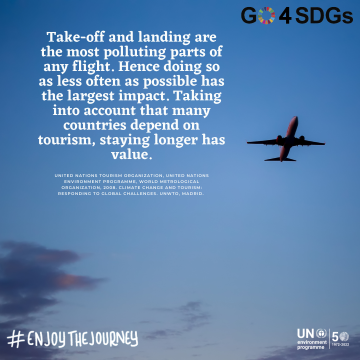
What we eat, what we buy, where we live, how we live and what we do for fun all matter in a world stretched to ecological limits. So what does it mean to reduce our individual climate impact and live sustainably?
It is when our way of life, our social behaviours and our choices minimise environmental degradation (use of natural resources, CO2 emissions, waste and pollution) and support equitable socio-economic development and better quality of life for all.[1]
Over the last 12 days, The Anatomy of Action has outlined the tangible everyday individual actions that contribute to Sustainable Development Goal 12, ensuring responsible consumption and production.
Through everyday lifestyle swaps - under food, consumer goods, housing, mobility and leisure – we can move away from damaging daily actions.
These five areas that meet our everyday living needs hold the potential, if enough people swap, to support the global changes we need to meet 2030 targets.
We’ve covered FOOD, STUFF, MOVE and MONEY. For the final area of action, we explore the importance of what we do for FUN and how it can have a positive or negative climate impact.
Our identity is not defined by our possessions, but is an accumulation of the places we’ve been, lessons we’ve learned, people we have interacted with, and the experiences we’ve had. Under FUN, the Anatomy of Action details three key areas of action to reconnect with the world around us and become conscious travellers:
- #EnjoyTheJourney
Staying local can reduce your carbon footprint, help local economies, and can be more cost effective. When you do go the distance, try to stay longer and choose better products.
For example, take-off and landing are the most polluting parts of any flight. Hence doing so as less often as possible has the largest impact. Taking into account that many countries depend on tourism, staying longer has value.[2] And do some research on how your spending can benefit the local economy, thus supporting local culture, restaurants, artists and business.
In addition, lots of countries do not have the infrastructural means to recycle, hence cutting plastic from tourist activities can have a huge impact.[3]
- #StayCurious
Life becomes more valuable through the addition of new knowledge, ideas and actions. By embracing curiosity, you can gain all sorts of lifelong benefits, from a more flexible outlook on life and work, all the way to setting a better example for our kids and communities.
Did you know that reading, even for short periods of time, can dramatically reduce stress levels?[4] Adopt a lifelong learning approach to not only enhance your mental health and overall well-being, but also to keep your mind engaged and interested in what the wonderful world has to offer. This also applies to discovering new ways you can integrate nature into your daily life!
- #ChooseExpereince
Consider spending more time and resources and on experiences that add value to your life.
Could you imagine that stress levels increase with accumulation of material goods, and ultimately affects good health?[5]
More often than not, buying something does not represent an profound or enriching life event, while living experiences may bring us closer to certain places and people – thus shaping who we are and how we see the world.
For instance, exposure to nature increases children and youth’s emotional affinity toward nature, ecological beliefs, and willingness to engage in pro-environmental behaviours.[6]
Our collective future is dependent on the cumulative outcome of our actions today. The final (and fun) actions from the Anatomy of Action prove to positively impact individual and collective well-being. It’s time to undo the materialistic ways of the past and embrace a life of experience and adventure (be it near or far).
Join the Anatomy of Action for the final three days and join thousands of people all over the world in living better and lighter or people and the planet.
Official event page: here
And follow the challenge on Instagram @TheOfficialAnatomyofAction
[2] United nations tourism organization, united nations environment programme, world metrological organization, 2008. climate change and tourism: responding to global challenges. UNWTO
[3] United Nations World Tourism Organization, 2008
[4] Coleman, john, 2012. for those who want to lead, read. Harvard business review.
[5] Saxbe, d.e. and repetti, r., 2010. no place like home: home tours correlate with daily patterns of mood and cortisol. personality and social psychology bulletin, 36(1), pp, 71-81.
[6] Sage Journal, Environment and behaviors - Mechanisms of Children’s Exposure to Nature: Predicting Adulthood Environmental Citizenship and Commitment to Nature-Based Activities, 2017
